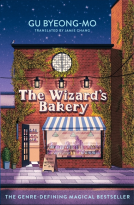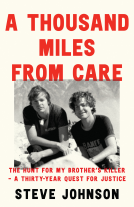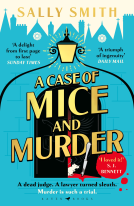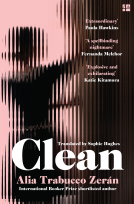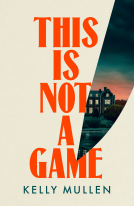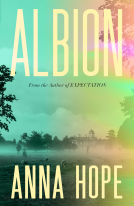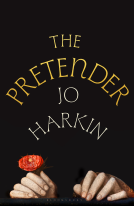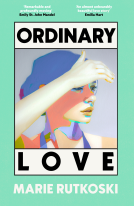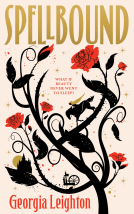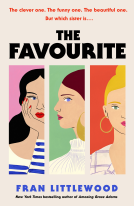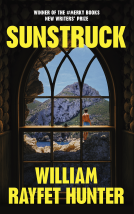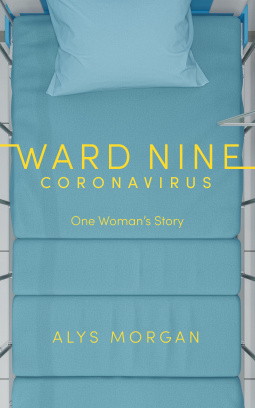
Ward Nine: Coronavirus
One Woman's Story
by Alys Morgan
This title was previously available on NetGalley and is now archived.
Send NetGalley books directly to your Kindle or Kindle app
1
To read on a Kindle or Kindle app, please add kindle@netgalley.com as an approved email address to receive files in your Amazon account. Click here for step-by-step instructions.
2
Also find your Kindle email address within your Amazon account, and enter it here.
Pub Date 4 Jun 2021 | Archive Date 1 Feb 2021
Talking about this book? Use #WardNine #NetGalley. More hashtag tips!
Description
'Two of the patients in my room were put onto trolleys and taken out, and then two more women wheeled in.
“This is now a Coronavirus ward,” said Susan. '
Alys Morgan was admitted to hospital on the 19th of April, with an unexplained sickness which had rendered her too weak to move. The next day she was diagnosed with Covid-19 – though staff understood her symptoms as little as the virus itself.
This is one woman’s account of a pandemic no-one seemed prepared for – from the bed of a North-Wales hospital struggling to care for its multiplying patients. It’s a story of mothers and daughters, isolation and survival, love and loss. But most of all, it’s a testament to everything we owe those providing care – and comfort – on the new front line.
This memoir is based on diary entries originally published online as part of The Hearth Centre's Tales of Lockdown series, and includes a Foreword from a Frontline Junior Doctor.
A portion of book receipts will be donated to Mind Conwy who continue to support those, like Alys, who have been affected by the pandemic.
Advance Praise
‘A window into the work we do - and heart-warming proof of why we do it.’ Julia, Staff Nurse, NHS Wales
‘A very powerful, absorbing and moving read. Brilliant.’ Claire, Counsellor, Conwy Mind
'Relatable and real, a true patient experience in the modern NHS. Everyone should read this.' Dr B Pyrke, NHS Wales
'When we read Alys’s account of the experience of having Covid 19, and also her treatment in hospital, we were in no doubt that we wanted to include it on our Tales of Lockdown blog. Alys’s lucid prose gives the reader a real sense of the disease - and has you hanging on the edge of your seat, willing her to pull through! I would strongly recommend it to anyone if they are in any doubt as to the huge impact of the virus on physical and mental health.' Polly Wright, Artistic Director of The Hearth Centre
'This is an honest and emotional account of the realities of having COVID-19. It illustrates clearly not only the physical impact but the trauma and emotional impact too. This is hugely relatable if you have been through this, and a moving insight if you haven’t. It shows how the committed care of others, personal strength and hope make recovery possible.' Claire, Counsellor, Conwy Mind
Available Editions
| EDITION | Other Format |
| ISBN | 9781913640316 |
| PRICE | US$12.99 (USD) |
Featured Reviews
 Andrea R, Reviewer
Andrea R, Reviewer
Thank you Alys Morgan for sharing your experiences. It brought home the fact that you can catch this horrible disease easily and end up not only with serious physical issues but mental scars as well. I do not feel comfortable with a free copy of this book and will be buying a copy as a mark of respect to the truly wonderful staff of the NHS dealing with this on a daily basis and also to the much needed support of MIND during this pandemic. Buying the book and making the contribution to the charities Alys has chosen seems a small gesture in times of great need.
 Stacey H, Reviewer
Stacey H, Reviewer
A well written account of what it's like to have Covid_19, how quickly it can take hold & an honest insight as to what it's like in many of our hospitals rights now whilst the Pandemic continues to rise.
My Mother was tested positive back in July & she too thank God recovered very quickly without the need for hospital care.
This covered every aspect from lockdown, clapping for the NHS & even the authors dislike of Bojo's wayward hair.
A fascinating, yet daunting read as we now are a day away from entering a second lockdown & with so many thinking they're still invincible, not wearing masks & ignoring Government guidelines, who knows what is yet to come?!
I'm glad the author made a speedy recovery ☺
This book certainly puts things in to perspective for anyone still spouting rubbish that Coronavirus is a “hoax”
Ward Nine - Coronavirus is the story of Alys Morgan who was admitted to hospital with what she thought was gastroenteritis. She was later moved on to Ward Nine and was told she had tested positive for Coronavirus.
I read this book the evening before England entered Coronavirus Lockdown 2.0 - the memoir is 150 pages long but every page packs a punch.
I am one of the clinically vulnerable that was instructed to shield and as a result I have been off work since March (thankfully my boss and work have been fantastic) I’ve barely left the house in 8 months and we are about to enter another lockdown in a matter of hours. This virus is scary. This virus should be taken seriously. I can’t explain how angry I get when I see news reports of people carrying on as normal. If you’re fortunate enough not to get this virus that’s great but how many people could you pass it on to by being selfish and not wearing PPE, washing your hands and keeping your distance?!
Thankfully after 3 weeks in hospital Alys was allowed home but that wasn’t the case for many people she shared a ward with.
This book pays homage to our NHS and the staff that work there every day still risking their own lives to save ours. Still keeping separate from their families so we can stay home and see ours.
The message is simple. This virus is a killer. Follow the guidance. Wear your mask. Support our fantastic NHS and hope that you, and the people you love aren’t devastated by this virus that has become a global enemy.
Thank you to NetGalley, the publisher and the author for an ARC in exchange for an honest review.
I received an advance copy of, Ward Nine: Coronavirus, by Alys Morgan. This is a very good book, a first hand description of having the dreaded virus. This has been a year of firsts for most of us, lockdowns, schools closing, churches closing, just unimaginable change. This book is also a testament to the front line workers.
 ANGIE W, Reviewer
ANGIE W, Reviewer
This ultimately is a book of praise for our wonderful NHS and the key workers (from doctors to catering and cleaning staff) who are working together, dealing with the current pandemic conditions.
Alys had coronavirus but didn't know it: her symptoms were different to how the virus usually presents; and she stayed at home for 10 days before becoming too weak to move and realising she needed a higher level of care than her husband could give.. Transferred to hospital, she was routinely swabbed for the virus, but even staff in A & E didn't think she had it. When the positive test result came back, Alys was too weak to care, and had all but given up recovering. It was the staff who looked after her day and night, encouraging her to try to get better that made the difference; she didn't want to let the people, who cared so much about her, down
This diary was written retrospectively: at the time Alys was too ill to write it, but she pieced the story together towards the end of her stay. After she returned home, she needed ongoing help from the local mental health team - proving that this disease is more than just flu, or a bad cold, it can completely turn your life on it's head.
The diary is juxtaposed with paragraphs from the Daniel Defoe book "A Journal of the Plague Year" which was published in 1722, and reportedly based on a diary from his uncle who had lived through the 1665 plague. It does show that nothing has really changed and how people think and behave personally and socially at a time when a deadly virus is working it;s way through the population. I think the way she presented her book around the Daniel Defoe book added to the story and was enlightening.
It's a journal of hope - recovery from the direst of circumstances is possible; and a journal of love and appreciation.for the staff who work so hard in the NHS, and are rewarded with weekly claps rather than decent pay and working conditions.
It's a short, but very interesting read.
Thank you to NetGalley and the publisher for providing this book in exchange for an honest review.
There will soon be an abundance of books about Covid-19 and the impact its had on every aspect of life. This book is a short Diary from the perspective of one survivor. The excerpts from Defoe's book were distracting to me but I do see why she included them as the situations are somewhat similar. Overall, this was a pretty decent book. I had to laugh about her comparison of ventilators and her Dyson vacuum. But there is definitely a seriousness to the comparison too.
 Natalie E, Reviewer
Natalie E, Reviewer
Thank you to NetGalley for giving me the opportunity to read this book.
This book is a personal account of a lady who became really unwell back in April with an unknown illness. Her symptoms did not match up to the symptoms for Coronavirus, but she needed hospital care, where she subsequently tested positive for the virus, displaying only those symptoms not akin with the disease. The story, albeit short, is personal, sad, and hard hitting from someone who has seen what happened in the hospital during the first wave of the crisis. A real eye opener that all should read, especially the ones who haven’t taken the virus seriously and continue to misuse the tireless NHS.
One woman's experience with COVID-19. This was an enlightening read that brought me more understanding of the novel Coronavirus. It gave me some more perspective on the impact it has on individuals and families, and how hospitals are coping and dealing with it. It is a very scary time and we dont know everything about COVID-19, but we should take it seriously because it is very serious. Everyone should read this book because it is important to know more about Coronavirus!
Wow this is obviously such a timely book. I felt that I couldn't relate as much because I live in America where the medicine, health care, and overall trends look different but it really showed the scary reality of COVID-19. I am also impressed by the usage of journals from Daniel Defoe's "A Journal of the Plague Year" from 1664. I really appreciated that tie in.
 Greta U, Reviewer
Greta U, Reviewer
I read this book in one sitting. It was a very interesting memoir although really heartbreaking. I found the Daniel Defoe's passages from his book really interesting as they made me realise how much the pandemics are almost the same throughout the centuries. The only problem is that I found the book really short and it needed a lot more details. Nevertheless, it is a really hopeful book.
This is a truly thought provoking book. It’s not an easy read but such an important story to tell. Highly recommended
 Michelle B, Reviewer
Michelle B, Reviewer
A personal account of Alys Morgan’s experience of Coronavirus.
Alys’ symptoms were not typical of the virus and she therefore did not seek treatment for a longtime and indeed did not believe she had the virus when she was admitted into hospital. Her experience whilst in hospital is documented in journal form and makes for very difficult and emotional reading.
The book is a testament to all of the people who work in the caring profession and in the NHS.
Thank you Alys for telling you story, and I hope you continue your journey to 100% physical and mental health.
Thanks to NetGalley for a Kindle copy of this book in exchange for an honest review.
This book gives the reader a chance to see what it is really like firsthand to be hospitalised with coronavirus.
It definitely makes you grateful for our NHS and all the amazing people who work within it who are risking their lives daily to help others.
This was a nice quick read and I like that a portion of each book sale will be donated to Mind Conwy.
 Nicola B, Reviewer
Nicola B, Reviewer
A true account of having Coronavirus and coming out the other side. I found this an interesting diary style read and enjoyed the inserts from Defoe’s “ A journal of the plaque year” . The similarities between the two scenario was fascinating. Thank you Alys for an honest account of hospital life and the incredible work Nhs staff are doing at this time.
I found this book really, really interesting as someone who falls into the “I’ve not had Covid” camp, I can’t really imagine what it’s like. I am a huge NHS Supporter (honestly the majority of my friends and family are NHS staff) but reading about what they’re all doing in hospitals over Covid now is just incredible!! The care they give to those affected and the risks doing their job has to their own health is truly inspiring!
The author uses Defoe’s book regarding The Plague as reference for Covid and shows a comparative view throughout the book. I liked this aspect because it reflected a little bit of hope, that we got over that so we can get over this! But it’s scary that viruses can hit anyone at any time and the rules our governments are putting in place is to protect the NHS and to protect us. This has helped me realise just how much the NHS are doing and how strained their resources are.
A book to pick up no matter if you’re part of the NHS, or not, if you’ve had covid or if you’re one of the lucky ones who hasn’t!
COVID-19 has taken over the world this year and in one way or another we’ve all been affected by it. Whether that’s battling the virus, watching someone you love battling it, losing a loved one, or been locked down in your house. This pandemic has tested everyone - and we owe everything to our NHS for the sacrifices they have made to treat the people suffering with covid-19. Their sacrifices should never be forgotten.
Ward Nine starts as the author is browsing her local library - it’s the place she first found out that the UK was about to go into lockdown. The book is presented as a series of diary entries detailing their experience from lockdown, watching the world change and adapting to a new normal, through to getting unwell and ending up in the hospital. I think this book will also raise awareness that covid 19 can present in other ways (uncommon but possible) other than the typical symptoms noted.
It was a very raw, authentic story about what it’s like to battle COVID-19. About the loneliness of being inpatient with no visitors, the fear of the unknown, but also how the routine and care from the staff gets you through.
As a very relevant topic, this year has been significantly difficult for everyone and hearing Alys’ version of events and the journey she had in Ward Nine.
This is a year no one will forget and the book kept me hooked right through. When she contracted Covid (although the symptoms were unrelated) Alys then went through her own difficult time and thanking our NHS staff was beautiful.
A truly informative book, from an outsider looking in. I loved this memoir and would highly recommend!
 Richard L, Reviewer
Richard L, Reviewer
Just a short account of one person’s experience during the COVID lockdown and then becoming so poorly they had to go into hospital.
Despite not having any recognisable symptoms the author was tested for and found to be positive with Coronavirus.
Alys Morgan found the isolation and the suffering of others too much to bear at times. She found she went into hospital with few personal items, cut off from family and friends. But overtime although she never gave sufficient voice to her appreciation and gratitude for the care, understanding and support from the staff team on Ward 9 in her local hospital.
She was encouraged to write her thoughts down and undertake therapeutic reading to help her recovery. She calls this collection of her experiences a love letter to those in the NHS who risk everything to make a patient’s time in hospital less lonely, less frightening and manage their pain and expectations.
It would be foolish to critique another’s expression of love; especially when one has not endured or overcome the lows and highs in the pandemic from a hospital bed.
All one can say is based on how the piece moved you.
I feel privileged to have been able to read the powerful account. This elderly woman did little of merit, but survive. She feels guilt for that but along the way picked up the baggage of righteous anger for the diverse staff in low paid jobs, nurses over burdened by debt and witnessing a courageous fight without the means to prevail or be protected in that struggle.
I like that such passion is stirred up in a woman of age who identifies that her generation gave so much but still have to work until sixty-six. One expects a more conservative outlook rather than political insight. Yet her writing is clear, relevant and enlightening in terms of making sense of this pandemic and the responses to it.
I like the comparison to her parent’s memories growing up during the War. The quotes from and linkage to Daniel Defoe’s “A journal of the Plague Year” (1772) was both inspirational and helpful.
That this was written without the benefit of hindsight means we are not learning lessons that will take an enquiry. But we perhaps do learn some of the things we need never to forget, those who died alone, the grace and love shown by strangers and the sacrifices many made.
It is a short book and can be easily read in one sitting. It isn’t a morbid book but a positive life-affirming piece of thoughtful writing - a letter of love.
 Ruth G, Reviewer
Ruth G, Reviewer
Thank you to Netgalley for a pre publication copy. In return for an honest review! #Wardnine:Coronavirus #netgalley
Alys Morgan diary about her experiences during the coronavirus pandemic. Including being in hospital with a positive result.
I was looking for a Memoir and came across this one. The title drew me in to take a chance on it.
This book is an emotional read. Although we've all lived the last year of corona virus, including having the virus. Reading it is something very different. Surreal is the only way to describe it!
The way Defoe is used throughout to show the similarities between coronavirus and the Great plague. Is very special insight but equally as scary.
Beautifully written to drew together unity, NHS, love and fear in the face of adversity. It will be a read to be used in schools in the future to never forget.
It would be great for Alys to write a sequel of her recovery in the community.
 Kim M, Reviewer
Kim M, Reviewer
really enjoyed this book which gave a small insight into what it was like to be a patient at the beginning of this pandemic.
Alongside the authors narrative are quotes from Daniel Defoe back at the time of the plague. His writings mirror what the world is facing now.
This is a cleverly written story, present written alongside history. To the author....thank you for the insight you have given the reader during such an unsettled time in the world where initial knowledge was limited but is growing every day. May you continue with your recovery.
Thank you #Netgalley for the advanced copy.
Alys Morgan was admitted to the hospital in the middle of April 2020, for flu like symptoms....turning out to be COVID. I appreciated her sharing her raw experiences and the interactions she had while on her female covid unit. Working in Healthcare, I found it extremely interesting hearing from the patient's perspective during these unprecedented times. I appreciated her honesty and comparisons to the plague.
I received this book from NetGalley and the publisher, in return for an honest review. This review is based entirely on my own thoughts and feelings.
Overall rating : 3*
Writing skill : 4*
Length: 2*
Perspective: 3*
This was a short book on the real life struggles patients face with this disease. Normally I would have expected this to be written from the perspective of the doctors or nurses but this was a fresh and I'd say more harrowing view. We see how quickly the virus takes hold, and in some people, how close to death you can be. The downside is this was far too short and I think it would have been perfect as a blog. Its almost like the author/publisher wanted to be the first for this type of book, rather than fill the book with more than one account which I personally think would have worked much better. Anyway, praise as always to our NHS, and if you havent first hand been touched by CV19, I'd suggest you read this.
 Abby S, Reviewer
Abby S, Reviewer
A book that is so timely so relevant .Really hard to read as we all live through the pandemic but important moving so many courageous people.#netgalley #wardninecoronavirus..
 Paula D, Reviewer
Paula D, Reviewer
Alys Morgan lives in the town where I live and was admitted to the hospital where I work, I didn’t know that when I sat down to read this very personal diary of her experience with Coronavirus. The tale is quite harrowing and frightening but so relatable. The comparisons to Dafoe’s work are really uncanny and stop you in your tracks to think this has happened before and yet here we seem to be again. I have lost friends and colleagues and family members, some recovered some have not and the grief is crippling and yet we carry on, determined to make a difference in some small way. A great recount, it immersed me, and made me cry, to be clapped off the ward for ‘making it’ is so emotional and yet so fitting to the success of the nursing staff’s care.
Highly recommended, insightful and thought provoking.
ARC copy.
 Sally T, Reviewer
Sally T, Reviewer
I was particularly intrigued to read this book as I’m a nurse and worked on a corona virus end of life ward during the first wave ,so it was revealing to see how this experience was felt by a patient who had endured and conquered the virus, particularly the aftercare that was needed both physically and mentally especially as now the longer term effects of the virus are being brought to light! The parallels with the plague interestingly highlighted the many similarities between this current corona virus pandemic and the plague! A good insightful account well worth a read.
 Lynnette A, Reviewer
Lynnette A, Reviewer
Coronavirus is another one of those things that seems to have split the nation, indeed nations all over the world. With some people taking the threat very seriously and others determined to keep living the way they always have, sure that the "risk" is minor and that they will be "fine".
Unfortunately Alys Morgan wasn't fine, and this short novella is a diary about what happened to her in her home town in Wales. Having nursed her daughter through something that was diagnosed remotely as gastroenteritis Alys caught it herself and on April 19th was admitted to hospital. She was so weak she could not stand and was unable to tolerate even water in her system. The next day she was diagnosed as having Covid 19.
In these early days the staff knew about as much as everyone else about treating Covid 19 as virtually every patient presented with different symptoms. While this book is a record of what physically happened to Alys it is much more than that. It celebrates the sacrifice and dedication of everyone working in her NHS care team from the minimum wage cleaners right up to the consultants. It is about her physical care but also out the mental anguish that occurs as a survivor. In the midst of death and despair there is a beacon of hope and the light of love shines through it all.
A truly excellent and very moving first hand account of the coronavirus.
This book is harrowing, brutally honest, and exceptionally emotive.
Insightful to all of us who are lucky enough not to have encountered this awful disease first hand, and educational enough to advise us what to do if we ever do become infected.
I wish Alys well in her continuing strive for recovery, and thank her for sharing her story with us.
An easy 4 stars.
I have luckily not tested positive for COVID and I can only understand what it’s like for an individual suffering with it as an outsider looking in. I am a student mental health nurse and believe it or not, we do work with COVID cases and every single case is truly heartbreaking. The sheer determination and compassionate care that I see professionals deliver on a daily basis is next to nothing.
This short memoir is something that needs to be read by anyone who has any doubt about the severity of COVID-19 and anyone who works within the NHS or not. This is a very raw and authentic story of an individuals experience with COVID. It highlights not only the physical effects of the virus, but the mental and social effects it can have on us too.
Thank you so much Alys for sharing your experience, it was eye-opening, raw and interesting. Thank you to NetGalley and Parthian Books for this ARC in exchange for an honest review!
 Lauren B, Reviewer
Lauren B, Reviewer
I felt so emotional reading this book - prob as it is so real and so relevant. It is written so beautifully and honestly. I think everyone needs to read it
 stephen h, Reviewer
stephen h, Reviewer
this book found refreshing as it was written by someone who suffered with coronavirus (COVID19) and survived even though they initially didn't have the classical side effects. its their journey from falling ill and their progress of the illness/virus and interlinked with quotes from the 1665 great plague of Defoe and Pepys
Having actually worked on this ward of this hospital, I found this book very close to home. I also grew up in the local area and have friends who work at this particular hospital who have seen this happening for the last 10 months day in. Day out. This book was a tough read purely because of its subject. It was heartbreaking to read and so sad to hear of the people who passed away. Very touching and thought provoking. Thank you to Netgalley and the publishers and the author for the privilege to read this book for my honest opinion
 Jennifer H, Reviewer
Jennifer H, Reviewer
I enjoyed this book for what it was - a diary of the experience of being a hospitalized covid patient in the UK. I also enjoyed the inserted portions about the plague to compare that experience with the one we are experiencing today. I am an American and in December 2020, when I read this book, we are at the worst of this pandemic and it resonated differently than if I had read it three months ago when my city had one of the lowest infection rates in the country. That said, I did wish there was more medical commentary. I would have liked there to have been more from the doctors and nurses about the specifics of the author's illness or how the virus was affecting others. I would have also preferred a detailed afterword as we know that many covid patients suffer from long term lingering symptoms, but this book just ends with the author being discharged from the hospital. I was provided a free copy of this book by the publisher in exchange for an honest review.
 Big Bertha ., Reviewer
Big Bertha ., Reviewer
Early in the Covid-19 pandemic a number of articles appeared online drawing comparisons between current times and Daniel Defoe's 'A Journal of the Plague Year' originally published in 1722. Alys Morgan draws similar parallels in her own journal published here as a short novella that includes paragraphs from the aforementioned publication.
Alys contracted the virus after caring for a daughter who back in March was incorrectly diagnosed with gastroenteritis. As her daughter recovered Alys found herself becoming ill and it was only when her condition worsened and she was admitted to hospital that a routine test confirmed that she had coronavirus.
The authors diary provides an honest and frightening insight into her thoughts and fears on a ward where not everyone was as lucky as her. The noises, the smells, the fear, the gratitude and the little things that meant so much makes for a thought provoking and often harrowing read.
This short read tells of not just her experiences but also the dedication of the health workers and support staff who worked long hours with unquestionable commitment trying to fight a virus they had no experience of and weren't properly equipped to deal with. My utmost respect to all of those who put others before themselves working long hours as the fight continues.
My thanks to Parthian books and Netgalley for the review copy, I was under no obligation and all opinions expressed are my own.
 Vicky p, Reviewer
Vicky p, Reviewer
This book is a direct and honest account of one woman's battle with coronavirus. It is written in the form of dated journal entries starting on the day the (first) lockdown was introduced in the UK and covers the period until the 8th May when Alys was able to go home after being teated in hospital for three weeks with Covid-19. It is interspersed with extracts from Defoe's A Journal of the Plague Year (1722) which highlights in a really poignant way the similarities beween then and now.
Alys and her partner John receive the news of the pandemic like most of us did around that time; not knowing much about the nature of the disease, trying to find their way around the "New Normal", having medical appointments cancelled or re-arranged and waiting for more news when Alys's daughter Catrin moves back in with them with symptoms of gastroeneritis. Although both Alys and John are aware of the risks associated with having her at home, they are conerned about her and anyway she doesn't have the typical Coronavirus symptoms. Catrin gets better ad moves out but a few days later Alys goes down with symptoms of gastroenteritis too. She hopes it will go away until at some point she realises that she needs to go into hospital: she hasn't been able to eat anything for ten days and this thing is not going anywhere.
In hospital she is diagnosed with Covid-19 -- a very atypical case of the disease. Alys gives us a heartfelt account of her journey in ward nine (where the Coronavirus cases are kept). We are privy to her feelings and innermost thoughts: how grateful she was to NHS staff but also how at some point she just stopped trying, as if death did not matter, as if it possessed a certain allure. How she got to the point where she had to be fed via tubes, and how at that point she realised she had to make a conscious effort to get better. How she felt estranged from her family who were understandably very concerned and called the hospital every day but who were not allowed to visit. How other women in the ward passed away and were taken out covered in white sheets because there were not enough body bags.
Alys raises some very important questions: why were we not prepared for this? Why was there not enough PPE? Why did some make tremendous sacrifices, dying without seeing their families, when others didn't? And what will happen when it happens again? Did we learn anything?
What I liked most about the book was Alys's brutal honesty. Having been treated in a hospital (though not for coronavirus thankfuly) there was so much I recognised in her account. How you worry about inconveniencing others especailly NHS staff and doctors. How touched you are to see that staff actually cares. But there were aspects of her illness and its aftermath that were new to me: how alienated she felt from the outside world and even from her closest family members. How this disease left marks in her mental health. "Why me?" is a thought that recurs to Alys. Why have I suffered? Have I become a better person for suffering? Or not?
Following three weeks of treatment Alys was able to move out of hospital. She additionally needed help to learn how to walk again as her muscles had wasted. She had sessions with an occupational therapist and with counsellors. But the disease left an indelible mark on her; and she wanted to let others know.
"This book was also written in the memory of the thousands who died, and continue to die, without any final contact with their loved ones -- amongst them many NHS workers. I wanted to give a voice ot the voiceless. This is also their story. They deserve to be remembered. They should not be forgotten."
My thanks to netgalley and Parthian Books for an advance copy.
 Reviewer 725341
Reviewer 725341
This was an utterly heartbreaking story of a woman who suffered at the hands of the corona virus.
I had tears in my eyes so many times reading this. If anyone doesn’t believe how devastating the virus is, read this.
It really hits home how underfunded the NHS is, how amazing the staff are and how quickly covid can change you life
There's something very odd about reading a book about living through a momentous occasion in history when that occasion is still very much underway. As different as things feel now, in November 2020, to the way they did back in March, coronavirus is still in every headline. We're still living under lockdown rules, and although there are some signs of light at the end of the tunnel, it's still a very, very long tunnel.
This was a hard book to make sense of. I understand that it's timely; that reading this book when Covid is still a threat adds to its impact, because it serves as a warning of how much work there still is to be done, and how bad things can get. I do, however, think that getting this book out quickly means that it feels somewhat rushed. Morgan writes very matter-of-factly and we never really get much insight into how she's feeling or what she's thinking; only what's happening to her. She sees people die and yet there's very little interiority or depth to those scenes. Sometimes, this sparse and unfeeling prose works very well, such as when she's describing the actions of the NHS staff. She doesn't dwell on sentimentality there, and just explains how hard they're working and how they're being run ragged, and I think this is the right call. In other instances, it comes across as almost cold. That said, none of us knows how we'll respond to living through such traumatic events, and Morgan's reaction is completely valid; it just doesn't always make for very compelling reading.
As a testament to the year that was 2020, this book is invaluable. Morgan includes a lot of the details that, to anyone in 2019, would seem ridiculous. Being afraid to walk too close to your neighbours in the street. Queuing outside to buy your groceries. The suspicion when you hear that anyone you've ever been in contact with might be ill; the worry that your sniffle is a deadly virus. She also astutely compares the whole thing to her mother's experience with the Blitz, the last time that the UK was undergoing such a rapid sea change in its way of life. There's a real sense in this book of living through history and of being part of it, and, of course, of how many people don't survive that history at all.
Throughout, Morgan includes related excerpts from Defoe's 'A Journal of the Plague Year', a book that Defoe wrote purportedly based on his uncle's experiences with the plague in 1665. Sometimes, these excerpts work - I had a little chuckle at her comparison to Trump's notorious bleach-injecting gaffe with the charlatans who peddle snake oil and herbs in the streets of Defoe's world. There are times that these comparisons are a little more tenuous - as haunting and unfathomable as the makeshift mortuaries of 2020 are, they don't quite compare to the plague pits and body collectors of the 1600s.
I wonder what sort of book this could have been if, like Defoe's work, this had been released after the crisis had eased, and been allowed to stand as a sort of historical document. If Morgan had been able to write with some of the benefit of reflection, I think it could have been an emotionally stronger piece. None of this is to say that I didn't enjoy it, because I did; or perhaps 'enjoy' isn't quite the right word. 'Appreciated', maybe. Morgan is a very competent writer, and reading this was one of the most - to use a horrible buzzword - relatable experiences I've had in a very long time. Coronavirus might affect everyone differently, but it does affect everyone, and Morgan's testimony is a stark reminder of that. I can absolutely see myself rereading this book in years to come, when the New Normal, as Morgan puts it, is hopefully in full swing, and being transported back to this year when everything changed.
I can’t say I enjoyed this book since it discussed such a difficult topic. Enjoyed is the wrong word, but I would recommend it as an insight to life during coronavirus. I originally rated 5* but I think I’m going to drop to a 4* after discussing with a friend and realising that even though a lot of the funds are going to Mind, the psychological impacts of COVID weren’t really discussed. They are a huge part of the impact of the virus and should be publicised more. Her story was so scary especially as people hadn’t realised that her sickness was actually a symptom.
I was alerted to this book by my friend who is a student mental health nurse and was brought to tears upon reading it. I also have a very close friend who is a doctor working on Covid wards risking her life fighting this virus everyday. The stories I have heard haunt me and I know she filters this and there is so much more she keeps to herself. I worry about the mental effect this has on her and other frontline staff, being thanked it seems with an empty gesture “Clap for the NHS”. How about adequate pay, funding, resources and equipment? Reading this book made me angry on their behalf.
I read this book today lying in bed recovering from Covid, I tested positive almost a month ago and despite serving my 10 days of isolation am continuing to suffer from its effects. I was lucky that I am strong enough to recover at home and have not required medical assistance but I resonate with so much that Alys describes and it was reassuring to know that she shared so many of my strange symptoms!
This is an honest and raw account of her experience, I loved how she used the quotes from Daniel DeFoe’s A Journal of the Plague Year written in 1722 as a perfect mirror of modern day. Humans it seems do not learn from history.
The most important aspect of reading this book is listening to her talk about the mental affect the virus has had which I feel is less mentioned within the media. You are bombarded with the 4 main symptoms everywhere you look, but what about the affect this virus has on our mental health?
A particular poignant statement she makes stuck with me “I thought about how the world is divided into two groups: those who have had it and those who have not.”
I feel this book is going to a be time stamp in our history, this period is going to be studied by historians in the future and this short account will form part of that narrative.
 Odette L, Reviewer
Odette L, Reviewer
Thanks for the advanced copy.
I work in the NHS and find this book upsetting in parts. I find this time of year difficult with pressure and this brings it home just how under funded the NHS really is.
Well worth a ready and an honest and open account that many need to read.
This is a truly emotional read it certainly is an eye opener into the NHS and the work they do.
It's thought provoking and had me in tears in parts.
 Reviewer 764903
Reviewer 764903
This book is incredibly important, and perhaps even shocking for many that are more ignorant on the realities of the virus.
Morgan has a unique way of writing in which she is able to convey the pain, confusion, heartache and hopelessness involved in the illness for her. She doesn’t pretend to be anything she isn’t - a normal person who indeed does find things challenging, and often impossible.
The book does this through a form of diary entries spanning from March to May, interjecting extracts from Defoe’s account of the Great Plague of 1665. Countless similarities are drawn between the Plague and the Coronavirus, heightening perceived severity of it all the more. This is such a powerful device employed by Morgan, and truly captures the fear she herself experienced.
Something I loved about this book was it’s portrayal of the NHS. Exactly the same as the writer, the NHS workers are ordinary people too - doing an extraordinary job. The genuine concern and care she portrayed them to have expresses the reason she herself kept going, didn’t give up. Even as she left the hospital, they were forced to continue; their job wasn’t yet over.
It’s easy to wish this book had been more positive, more full of hope or had a happier ending. But that would dampen the reality of the experiences many have had - and will continue to have. All we can do as readers is to keep going day by day - and to stay inside. Each person has a role to play, and this book is pivotal in expressing that.
 Justine P, Librarian
Justine P, Librarian
This book is the first I have read written by a Coronavirus survivor. It is true story of Alys who contracts coronavirus and is hospitalised for 3 weeks. She tells her story interspersed with excerpts from Daniel Defoe's A Journal of the plague year which really reflects this illness and the pandemic.
As someone who had coronavirus in March 2020 and was hospitalized in July because of lingering symptoms the isolation of the hospital ward really reminded me of my stay there. No visitors and just the staff there. Workers from all over the world putting themselves at risk at work to look after the patients.
As I write this in December coronavirus is increasing again and I do feel worried for the staff in the NHS and that this virus has changed our world forever.
Of course minds as well as bodies are changed by experiencing a virus that you may not recover from and the links in the back of the book are important and welcome. I went to have a coffee the day after I left hospital with my family and found myself crying in my cup because I thought I may never get to go to a coffee shop again. Covid changes lives.
I felt sad reading this book but glad that stories are being written about this time and I am glad Alys made it through and got better.
 Emma W, Reviewer
Emma W, Reviewer
This book was a lot shorter than I thought that it would be but a great insight into what it is like to have coronavirus and also the emotional feelings you will go through too.
I received this book from Netgalley in return for an honest review.
As someone that is a healthcare professional who works in a hospital this book really appealed to me. Most books about the pandemic have been written by staff but this book is about a patients experience with Coronovirus.
The book is written as a short diary from the perspective of a survivor. This person spent quite some time in hospital too.
The good parts of the book were the in depth writings of her symptoms, her experience in hospital and her thankfulness for the NHS staff.
Unfortunately for me it didn’t delve deep enough. I’m not sure whether this is because I work in a hospital or not but I wanted more from her own thoughts and feelings. She quotes consistently from Defoe’s book about the plague which I found distracting and annoying. I get the comparison but I felt 60% of the book was full of these quotes which I really didn’t like.
 Susie F, Reviewer
Susie F, Reviewer
An interesting book of a person’s first-hand account of having coronavirus, very honest and emotional read.
Thank you NetGalley for my complimentary copy in return for my honest review.
 leanne w, Reviewer
leanne w, Reviewer
Short and moving, this tale of covid 19 in the early outbreak is interesting and fully engrossing. Read in one sitting
Author Alys Morgan was admitted to hospital with an unexplained bug after having nursed her daughter through an illness. She was unable to stand and very weak. After a worrying night in hospital she was diagnosed with COVID-19 and what follows is her personal account of what happens to her and those around her.
She includes passages from Dafoe's The Plague which resonate with with the current pandemic and she cannot praise our wonderful NHS high enough. I found her story quite frightening at times as well as interesting. Would recommend.
 Reviewer 255244
Reviewer 255244
This book gave a true, in depth experience of having covid 19 and what it was also like for the medical staff, it was si h a touching read.
I was moved to tears by WARD NINE, a poignant first-hand account of COVID-19. Alys Morgan, an older woman, was one of Wales’ earliest patients when hospitalized for three weeks last April. Her
experience is relived in a spare though impactful style, less ethereal than Katherine Anne Porter’s PALE RIDER, PALE HORSE, a fictive narrative of the 1918 flu. We’re moved, as well, by quotes in Alys’ memoir from Defoe's A JOURNAL OF THE PLAGUE YEAR (the bubonic scourge in 1665 London).
WARD NINE reminds us of COVID’s lethality and the importance of precautions. It reminds us, too, that the human spirit is resilient. The world has survived pandemics before and will again. As Alys ponders in recovery, “How will I live now?”Book sales go, in part, to Mind Conwy in Wales, which provides mental health care to patients like Alys.
5 of 5 Stars
Pub Date 04 Jun 2021
#WardNine #NetGalley
Thanks to Parthian Books and NetGalley for the ARC, in exchange for my honest review.
 Sarah M, Reviewer
Sarah M, Reviewer
A hard hitting memoir of a Covid survivor. Alys gives an account of how it hit her family and how she ended up going through the complete hospital experience. I read this during lockdown 3 and had ambulance sirens passing so made it very real. A tribute to the hard working staff at the hospitals and the impact on the country. A really strong read reminding us why we need to adhere to these awful restrictions.
"Ward Nine: Coronavirus" tells the story of one woman's experience with COVID-19 through dated diary entries and selected quotes from Defoe's "A Journal Of A Plague Year (1972)."
Morgan's writing is very direct and honest. Her retelling of her experience with COVID-19 and subsequent hospital stay provides readers with a personal perspective on this ongoing health crisis - and forces us to consider if we're doing enough to help the situation.
While Morgan's writing style alone doesn't quite communicate the depth of this health crisis, her decision to include Defoe's writing does a great job confirming the message.
Given that the COVID-19 crisis is ongoing, I can't recommend this book to anyone right now (as it would probably terrify them), but I honestly believe this is an important book that will help provide a human perspective on the COVID-19 pandemic.
Thank you to NetGalley and the publisher for the chance to read this - and thank you to the author for sharing her story!
An honest and well-written account of what it’s like to have Covid-19. From the hospital stay to the symptoms. It gives the reader an insight into what our hospitals and serves as a reminder almost of what can happen and why it’s now more than ever important to follow the rules.
The book talks about everything that occurred in the first lockdown including the clapping for the NHS every Thursday evening.
It also saddening to see that it has been almost a year later and we are still in the same situation as we were back in march (worse if I am being honest). I really do think more people should read this as it might open people’s eyes to the realities of this disease and may reduce the vast amount of people who sadly still believe that Covid-19 is not real.
All in all a great read !
 Lisa H, Educator
Lisa H, Educator
Thank you for the opportunity to read 'Ward Nine: Coronavirus'.
I was grateful to be able to learn about Alys Morgan's experiences after contracting Covid-19. We are now in our third lockdown and daily fatality numbers are higher than ever and I worry that patients may now have to line up for the kind of treatment Alys Morgan had. The wonderful nurses and doctors will now be even more stressed and one can only hope that they don't suffer from long-term problems with their mental health.
 Diana A, Reviewer
Diana A, Reviewer
This is a fascinating and interesting account of one woman’s experience of being very unwell & hospitalised with COVID-19.
It’s a short easy read and although very sad and difficult subject it was enjoyable.
 Anne-marie C, Bookseller
Anne-marie C, Bookseller
Written by a woman who contracted Covid this shows the initial confusion over the symptoms and what, with the right support, the human body can overcome.
Alys had severe sickness and was diagnosed as having Gastroenteritis over the phone. When she hadn’t eaten for 10 days and her symptoms showed no sign of abating she was taken to hospital where she was diagnosed with Covid.
The Doctors, nurses, Healthcare assistants and housekeeping staff all played a part in convincing her to find the strength not to give up when she felt at her lowest ebb.
From the start the excerpts from Daniel Defoe's A Journal of the Plague Year showed comparisons with events from the 1700’s and now. I found these particularly interesting.
At times I felt it got a bit too political, the writer making a big point of saying where the hospital staff were from, when anyone who has spent more than 2 mins in a hospital knows that the people who work there come from all over and it really doesn’t matter, they are all appreciated equally.
Overall I did enjoy it and cried when Alys was discharged from hospital and was given a “guard of honour” from the hospital staff.
 Kade G, Reviewer
Kade G, Reviewer
Thank you NetGalley for providing me with a copy of this book in exchange for my honest review.
Let's start with the cover. It's simple but real.
.
Covid is a real and scary thing right now. This book provides a realistic view on how things are going for so many people.
The book was ... raw and insightful. I think everyone should read this at least once.
I'll definitely be looking out for other work by this author.
 Reviewer 725041
Reviewer 725041
This is a factual account of the author Alys Morgan’s battle with COVID-19. It starts in March 2020 as Alys learns that the library where she works will be closing for the foreseeable future due to coronavirus lockdown. As the days pass Alys learns how to cope with the restrictions imposed, while trying to get on with life. However as the weeks pass Alys finds herself ill and is very soon hospitalised with the dreaded COVID. This is a sobering, scary story of how this virus ravaged this woman, how she survived and how the NHS staff are struggling to cope with the onslaught. It is interspersed with quotes from Daniel Defoe’s A Journal of the Plague Year (1722) and the comparisons are eerily accurate. It’s a very short book so I would encourage everyone to read it in the hope it might help people understand how strange and unpredictable this virus is. Thanks to #NetGalley for this advanced copy. #WardNine:Coronavirus #WardNine #ParthianBooks #alysmorgan
 Venitra C, Reviewer
Venitra C, Reviewer
A Must Read. Simply written, a story that details three weeks of living in a hospital with the Corona virus. A ward of women stricken with the virus, and the story of one woman, her suffering, and the suffering of others with the same plight. The story of her battle is based in Wales. But, it describes millions of stories about a plague that “trumps” all plagues. Read it, follow it, don’t take it lightly. You will never be the same after you read one woman’s struggle with the virus.
 Jessica G, Librarian
Jessica G, Librarian
A poignant first-hand account of one of the UK's earliest COVID-19 patients.
Alys Morgan was hospitalized for three weeks in April 2020, as COVID-19 ran rampant around the globe. Her memoir, originally published online as part of The Hearth Centre's "Tales of Lockdown" series, provides a persona look inside a medical unit at the onslaught of the pandemic. It tells the stories uncertainty, isolation, loss and survival. Narratives such as these are sure to be for decades (if not centuries) to come, providing future generations with first hand accounts of the virus that upended the entire world.
I haven't been able to stop thinking about this book since I raced through it in a couple of days. Alys caught coronavirus early in the pandemic and spent time in an NHS hospital in Wales as she struggled to keep down food and drink and became extremely weak. This is an important record of her own personal experience. What overwhelmingly comes across in her book is the incredible dedication of the NHS staff and the collaborative effort trying to help Alys and other patients get better when faced with quite an unknown virus when it first appeared. In amongst her own diary entries are extracts from the book 'A Journal of a Plague year' written by Daniel Defoe. I personally like the inclusion of this, I thought it worked well and it was interesting to read actions at the time of the plague not being dissimilar to that of Covid.
Thanks to Alys for sharing her story. Thank you to the publisher and NetGalley for the ARC.
 Lisa S, Reviewer
Lisa S, Reviewer
This is a harrowing but interesting and timely account by Alys Morgan of her dreadful experience with coronavirus, cleverly interspersed with extracts from Daniel Defoe's book about the plague. Alys Morgan was extremely unlucky - she caught the virus in March last year when very little was known about it, and there wasn't much preparation for it. She provides a graphic account of how the virus affected her both physically and emotionally, and the loneliness and isolation of the hospital, except for the excellent staff. It's quite deep and philosophical with extracts of Matthew Arnold's poetry, but simply written.
This is certainly worth reading, and she provides a helpful reading list about plagues and isolation at the end.
I received this free ebook from NetGalley in return for an honest review.
Wow what a book I think everyone who thinks Covid is fake news should read about this woman’s experience of the virus and what actually goes on, on a Covid ward. This book is heartbreaking but will also restore your faith in humanity and the selfless acts that people are doing to keep us alive and safe in very unprecedented times. I loved the mix of the Plague novel as it’s scary how much it resembles what is happening now. Everyone should read this.
This book is written in the form of diary entries covering the authors fight against Covid 19. It is a direct and honest account of her battle with the virus from before testing positive up to her discharge from hospital. She also draws parallels with the great plague.
It is quite a short book but is an interesting read.
 Hilary W, Reviewer
Hilary W, Reviewer
This is a relatively slight book, but as you can see from the title totally relevant to now. My review has been delayed because between arrival and writing I too became ill and am now designated as having “Long Covid” – and it is not a comfortable place to be – but it is interesting to see how another – in another part of Britain was hit by the pandemic. But it has been a very long year for most people as they adapt to where we are – one of the compelling things about this book is that it takes us back to that very strange place where we didn’t really know how it was going to affect us.
Morgan admits that the first time she heard of Coronavirus was on Saturday 21st March, at work as a librarian, when she was instructed to close the library to the public. She is close to retirement age, has a husband and a daughter and lives in North Wales. Her daughter very rapidly became ill with undiagnosed digestive problems – unusual symptoms of the “C” that are not always recognised. Her parents stepped in to support her. Morgan then started to display similar symptoms and over a period of days - still at home - started to deteriorate until the family called an ambulance.
She was tested found to have the “C” and was moved to a special ward and nursed over several weeks. Once she improved she was discharged, albeit needing ongoing physical and mental therapy. This recounting of her year was recommended as a way to recover from the traumas of what she had been through and seen. So we have here a retrospective diary of what she went through. But to add a little bite, or perspective, it is threaded with contemporary accounts of another great pandemic, the “Great Plague” of 1665.
It introduces her earlier “pre” life. Her library is closed and she has to work from home. Shops start to put safety measures in place simple things change, from later March there is of course the “lock down”. But she recounts a life of seeming obliviousness to the harsher realities – something that we have all seen play out all year in communities that have barely been touched by the disease. There are the odd references to panic buying and shortages, but she admits life is absolutely fine – until that is her daughter and then she herself become ill.
Hospital was an eye-opening experience. She was in an already over-stretched hospital, first in an assessment ward until her test proved positive. She had to cope with severe illness, dependent on the care of a number of NHS staff for most intimate functions. She had very sick patients around her, elderly, demented and dying. Staff, too became ill. This book is thus substantially her homage to the NHS staff who nursed her and kept her alive - a staff who were drawn from all over the world (particularly relevant in “Brexit” year). But who worked long hours, poorly paid, under resourced, but with professionalism, dignity, kindness, and support for patients and their families and when they had time for each other.
But by the time this book was published things were already moving on from the “first wave”. Constraints were being lifted and those lacking in either vision or common sense (or both) were already talking of “normal”. So the books speaks to the innocence of whole communities of what was about to hit them – an innocence that was still in place months later as we walked into the “second wave”. So reading the book was like the proverbial quietly “watching the car crash”.
Some may still not be ready to read this book because of what they have seen or been through this year. But it is a seriously important read not just for all health professionals and managers, but all politicians at all levels. Because as well as showing the sheer day to day nitty-gritty of getting the disease it more importantly shows exactly how critical messages for community safety DID NOT get through. This at the cost of great loss, grief and trauma, even before we talk about the longer term impacts on “the Economy”.
This book is written as diary entries from a lady called Alys Morgan, who was admitted to hospital with severe sickness during the first wave of Covid 19. They did a Covid test which came back positive
What makes it even more moving, is that there are statements throughout the book that were written by Daniel Dafoe during the plague, and the similarities are quite humbling.
Although this story was very sad, as it goes on to describe Alys's 3 week stay in hospital, as she saw many patients come and go, I found this book touched more on how amazing the NHS staff were during her stay, even down to the catering staff and the janitors.
Great book, that I think will put a lot of things into perspective for a lot of people.
There have been so many ups and downs in the last year and a bit, and so many things have happened, I felt that I would have a sense of immunity (excuse the pun) to reading this book. How wrong I was. So many emotions come through this memoir: fear, anxiety, relief, loneliness, worry, love. I felt like I was reliving March 2020 again. I was very lucky that I never had Covid-19. However, the author’s words really helped me understand what it was like and how she was feeling at the time. I cried for her and for others and felt an overwhelming sense of relief when she was finally released from hospital.
It seems as if there was very little editing done to Ward Nine before its release. The language is basic, sometimes thoughts scattered, as if it was directly lifted from the author’s journal. I liked that. It would have lost its emotion if the words have been played with too much. It is a book like this, and not any scientific journal, that will really show future generations how it was to live during the Coronavirus pandemic. Thank you, Alys, for sharing your story.
 Fiona Marie C, Reviewer
Fiona Marie C, Reviewer
For over a year, we have read stories of lives devastated by coronavirus and watched them daily on the news. 'Ward Nine:Coronavirus' gives an emotional first person description of how it actually feels to be separated from your family and the outside world and how it feels to be completely dependant on drips for food and oxygen to help you breath.
Distressing as her account was, it was so touching and encouraging to read about all our NHS heroes who nursed her back to help and genuinely cared about her.
The insertion of sections written by Defoe was interesting and cleverly done.
Thanks so much to the author for sharing her story and thanks to netgalley and the publisher for the ARC.
 Clare M, Reviewer
Clare M, Reviewer
Thanks to netgalley for the chance to read this book.
Starting on the first day of the first lockdown this is the battle from coronavirus one woman faced. She suffered from none of the reported symptoms however, she was admitted to hospital and diagnosed with the dreaded virus. This is her account of how she felt through her experience.
 Maggie M, Reviewer
Maggie M, Reviewer
Alys Morgan gives an account of Corvid 19 from the sharp end. Her account of being hospitalised was captured vividly & I could well imagine why she needed psychiatric help afterwards. Alongside her account are extracts from Daniel Defoe's account of the Plague, which was an interesting juxtaposition. It was a quick read & one that I found moving. Thanks to Netgalley & the publisher for letting me read & review this book.
A truly moving account of one woman's experience as she became increasingly unwell and was admitted to Ward Nine: Coronavirus. A love letter to the everyday hero's of the NHS and Mind who healed her body and mind. An account of events as they unfolded and the strange new language we have all adopted - self-isolation; shielding; bubble.
Questions of lessons learnt (or not as the case may be).
An important account of a time we will never forget, and a tribute to all those affected by this pandemic. Survivors and their families. And for those who lost their lives - let us never forget.
My thanks to #Netgalley and #Parthianbooks for the opportunity to read this memoir.
What a fascinating insight into what has been an unprecedented health emergency worldwide.
I loved the comparison with Daniel Defoe ‘ A Journal of the Plague Year’
I found it thought provoking and like Alys I’m not sure if the human race has actually learned anything from the experience, selfish people will remain self absorbed.
Readers who liked this book also liked:
Kelly and Kristina Mancaruso
General Fiction (Adult), Mystery & Thrillers, Nonfiction (Adult)
